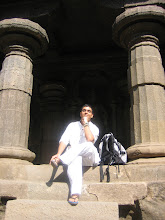The article is quite long but as with all of Bhante's works, definitely worth the read. An excerpt from the start of the article is below:
I will begin with some questions: If Buddhism is to be successfully transplanted in the U.S., does it need a monastic Sangha as its cornerstone? Must there be a monastic Sangha at all, or is Buddhist monasticism an outdated institution? Can the teachings flow entirely through a “lay Sangha,” through lay teachers and communities of lay practitioners? If monastics are necessary, what should their role be? What their duties? What changes in lifestyle and orientation, if any, are required by the new conditions imposed by the Western culture in which Buddhism has taken root?
My personal belief is that for Buddhism to successfully flourish in the West, a monastic Sangha is necessary. At the same time, I think it almost inevitable that as Buddhism evolves here, monasticism will change in many ways, that it will adapt to the peculiar environment impressed upon it by Western culture and modes of understanding, which differ so much from the culture and worldview of traditional Asian Buddhism. As a result, I believe, the role monastics play in Western Buddhism will also differ in important ways from the role they play in Asia. I do not think this is something that we need lament or look upon with dread. In some respects, I believe, such a development is not only inevitable but also wholesome, that it can be seen as a sign of Buddhism’s ability to adapt to different cultural conditions, which is also a sign of spiritual strength. At the same time, I also think we need to exercise caution about making adaptation. It would certainly be counterproductive to be in a hurry to make changes uncritically, without taking the long-standing pillars of our Buddhist heritage as our reference point. If we are too hasty, we might also be careless, and then we might discard fundamental principles of the Dharma along with the adventitious cultural dressing in which it is wrapped...









1 comment:
You've pointed towards an excellent article, Rob. My gratitude . . .
Post a Comment